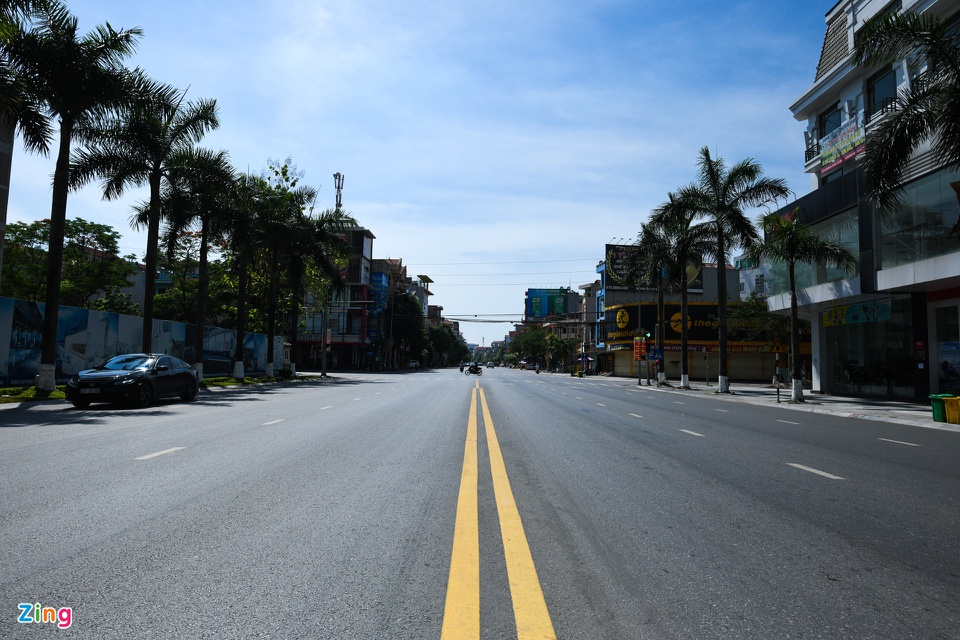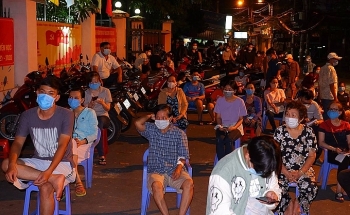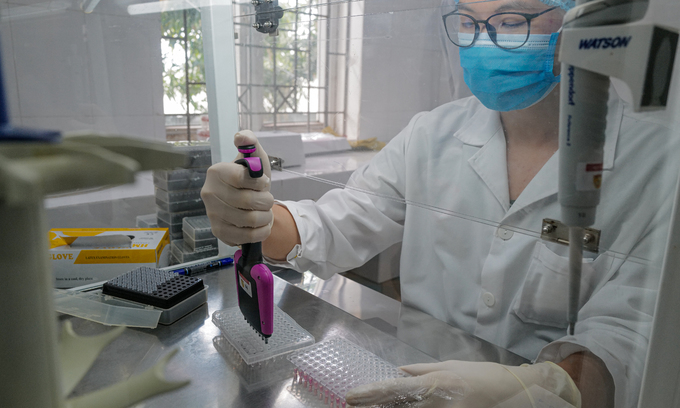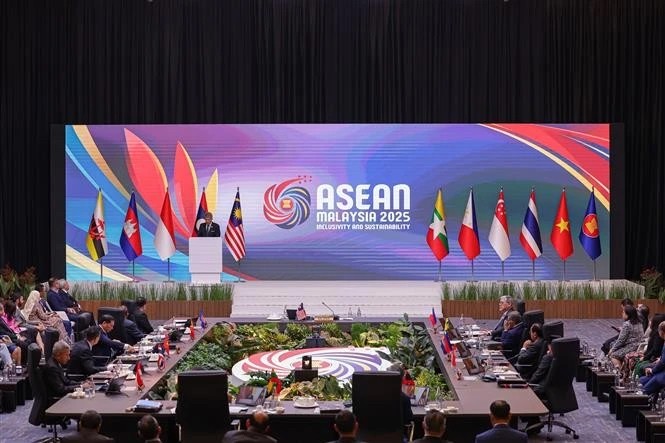Vietnam successfully sequences SARS-CoV-2 virus genome
| In Photos: Coronavirus-hit Bac Ninh deserted during social distancing | |
| Ho Chi Minh city to conduct large-scale coronavirus testing | |
| How dangerous is new hybrid coronavirus variant found in Vietnam? |
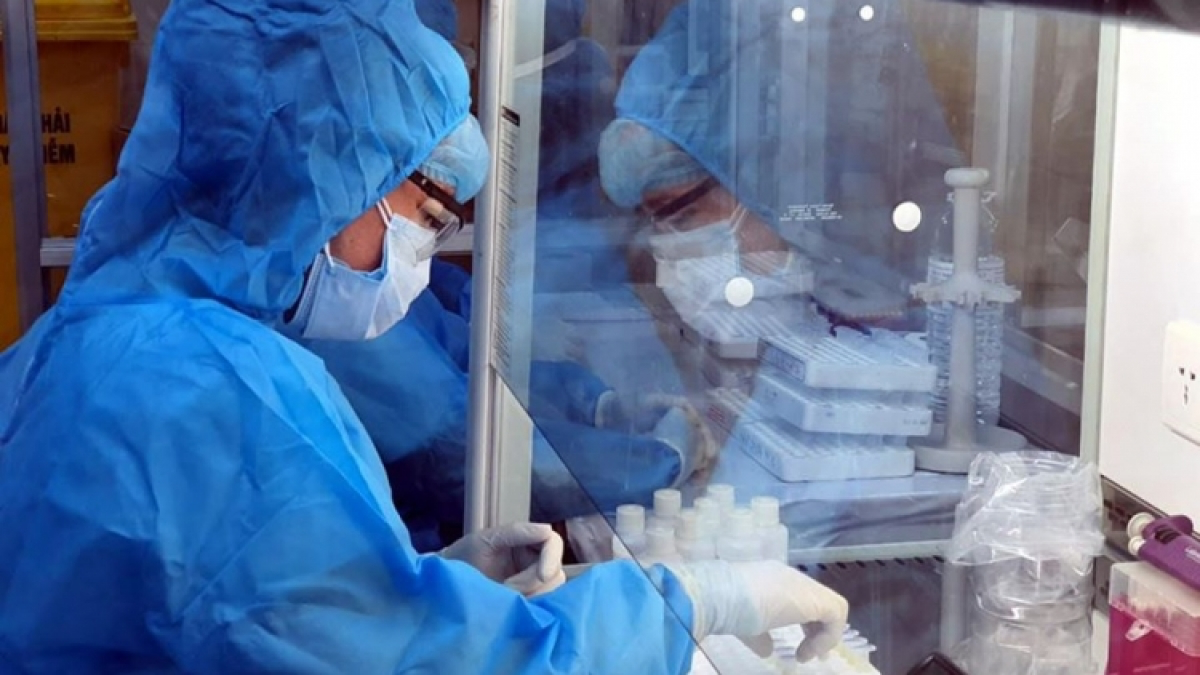 |
| Vietnam successfully builds first SARS-CoV-2 genome sequence. Photo: VOV |
The technological process of sequencing the SARS-CoV-2 virus genome by using the modern sequencing machine PacBio is the result of a scientific project assigned by the Vietnam Academy of Science and Technology (VAST) to the Institute of Biotechnology for implementation. This is being done for the purpose of supporting the country’s handling of the novel coronavirus (Covid-19) pandemic.
PacBio Sequel is a state-of-art new-generation unique gene sequencing system in Vietnam, allowing the sequencing of long DNA fragments with the shortest time and highest accuracy compared to other devices available in the country.
To carry out the task, the IBT has coordinated with the Pasteur Institute in Ho Chi Minh city and the National Institute of Hygiene and Epidemiology (NIHE) to develop a technical process to sequence the entire SARS-CoV-2 virus genome using PacBio Sequel sequencing technology, cited NhanDan.
The mission was accomplished within a year, with the successful construction of a six-step RNA virus genome sequencing process carried out within only about 48 hours, while other methods take about 72 hours.
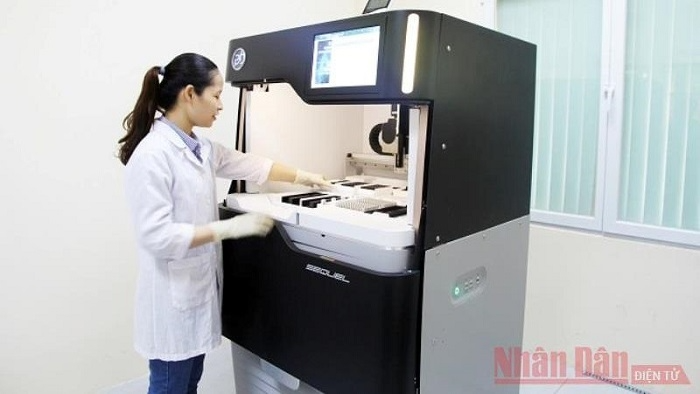 |
| Operating the new generation PacBio Sequel gene sequencing system. Photo: NDO |
Prof. Truong Nam Hai, project leader, stated that the Institute of Biotechnology has collaborated alongside the Pasteur Institute in Ho Chi Minh city and the National Institute of Hygiene and Epidemiology (NIHE) to develop this technical process through six steps. Including, culture and isolation of viral RNA and synthesis of double-stranded DNA from viral RNA. These two steps are carried out at the Pasteur Institute in Ho Chi Minh city and NIHE in a clean room of class III biosafety.
This is in addition to preparing the DNA library for gene sequencing, sequencing the whole genome of the SARS-CoV-2 virus, de novo assembly of the viral genome, and annotation and analysis of viral genomes. These steps can performed at the Institute of Biotechnology in roughly 48 hours, VOV reported.
Furthermore, Prof. Hai added that to sequence the SARS-CoV-2 virus in Vietnam, domestic units must use short-read sequencing technology, then assemble and reference the previous genome. This technology can take up to four days to read the complete genome and it is possible that errors occur in the reading process.
The study analysed four virus samples, one of which was isolated by the HCMC Pasteur Institute (isolated from a Vietnamese patient returning from Pennsylvania, USA, and entering HCMC on March 17, 2020), and the remaining three virus samples provided by NIHE, originating from the outbreak at Bach Mai Hospital collected on March 25 and 28, 2020.
As a result, the whole genome sequence of four strains of SARS-CoV-2 with a length of over 29,500 nucleotide/genome were sequenced, with genome assembly for a continuous sequence (contig) reaching an accuracy of 99.99%, cited NhanDan.
It marks the first time in Vietnam, the genome assembly process does not depend on the international reference genome. Meanwhile, other methods used at research institutes in the nation at present must be based on world reference gene sequences.
 |
| Photo: Sputnik |
Genome sequencing data can contribute to identifying the viral origin and sources of infection, known as F0, in outbreaks. This serves as a scientific basis and important information in the development of strategies and plans for effective prevention and control methods against the spread of the virus to the community, according to VOV.
Assoc. Prof. Ha Quy Quynh, head of the Technology Application Department under the VAST, said, "The successful research on the technological process of decoding the SARS-CoV-2 virus gene has contributed to building a proper treatment regimen for coping with the pandemic. Specifically, gene sequencing along with tracing allows us to determine the source of the virus's spread stemming from F0s, from which we can zone off affected areas and isolate the number of people involved. This is also a scientific basis for deploying optimal treatment regimens.”
With the mastery of the existing technological process, capacity, and conditions, the VAST is ready to co-operate alongside other health units in sequencing the SARS-CoV-2 virus genome on a large scale in urgent cases, in order to effectively boost local Covid-19 prevention and control efforts.
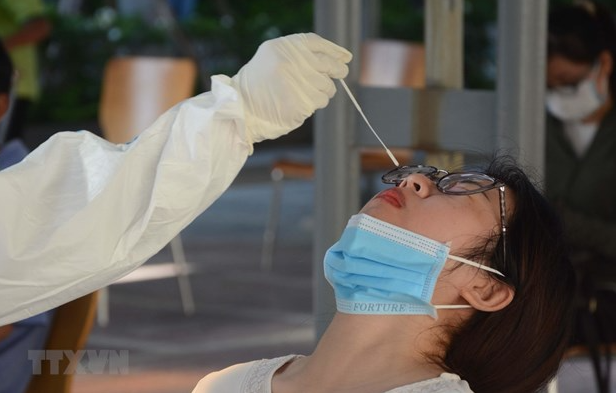 | Vietnam Covid-19 Updates (June 2): 193 new cases, another death reported Five weeks into the new wave, Vietnam has recorded as many as 4,549 local infections in 37 of its 63 cities and provinces. |
 | EU Ambassador willing to help Vietnam access COVID-19 vaccine sources Ambassador Giorgio Aliberti, head of the European Union Delegation to Vietnam, told President Nguyen Xuan Phuc on June 1 that he is willing to support ... |
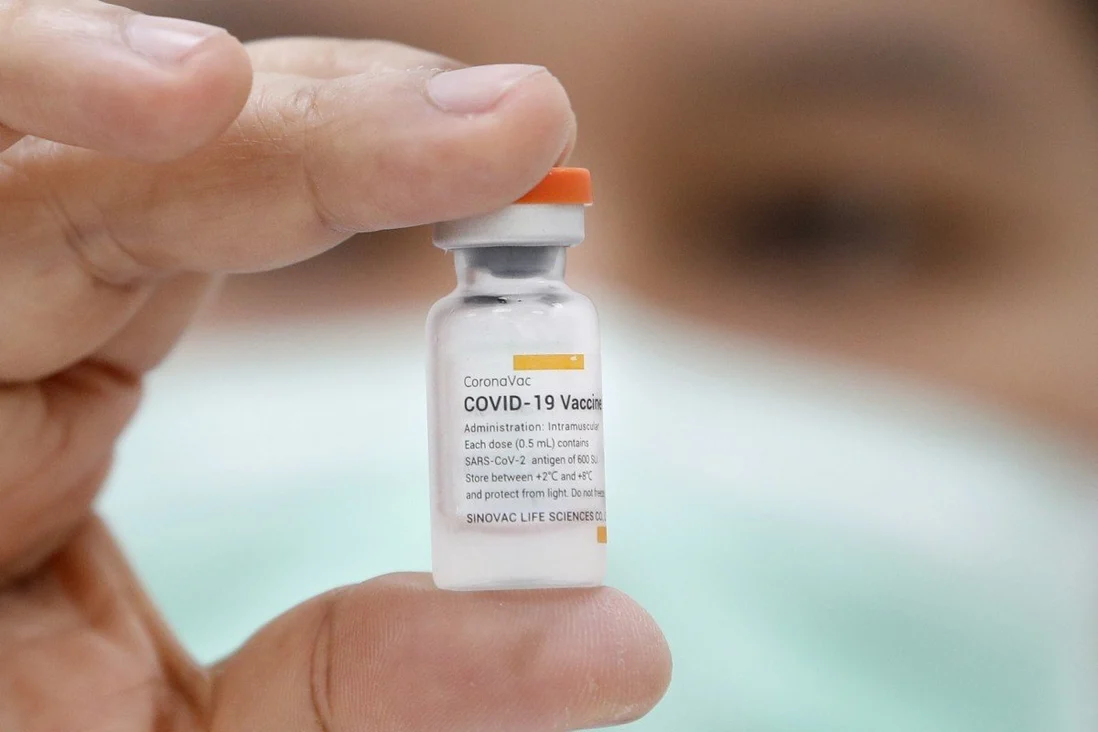 | WHO approves China's Sinovac Covid-19 vaccine for emergency use The World Health Organisation (WHO) on June 1 approved the Sinovac Covid-19 vaccine for emergency use - the second Chinese jab to receive the WHO's ... |
Recommended
 Viet's Home
Viet's Home
Hanoi, South Africa Strengthens People-to-people Exchanges, Expands Multi-sector Cooperation
 Viet's Home
Viet's Home
Hue City to Raise Awareness on Mine Accident Prevention
 Focus
Focus
Vietnam Leaves Imprints on the World Peacekeeping Map
 Viet's Home
Viet's Home
“Global Vietnamese Singing 2025” - Connecting Hearts Longing for Homeland
 Viet's Home
Viet's Home
Vietnam’s People's Public Security Force Actively Contributes to UN Peacekeeping Operations
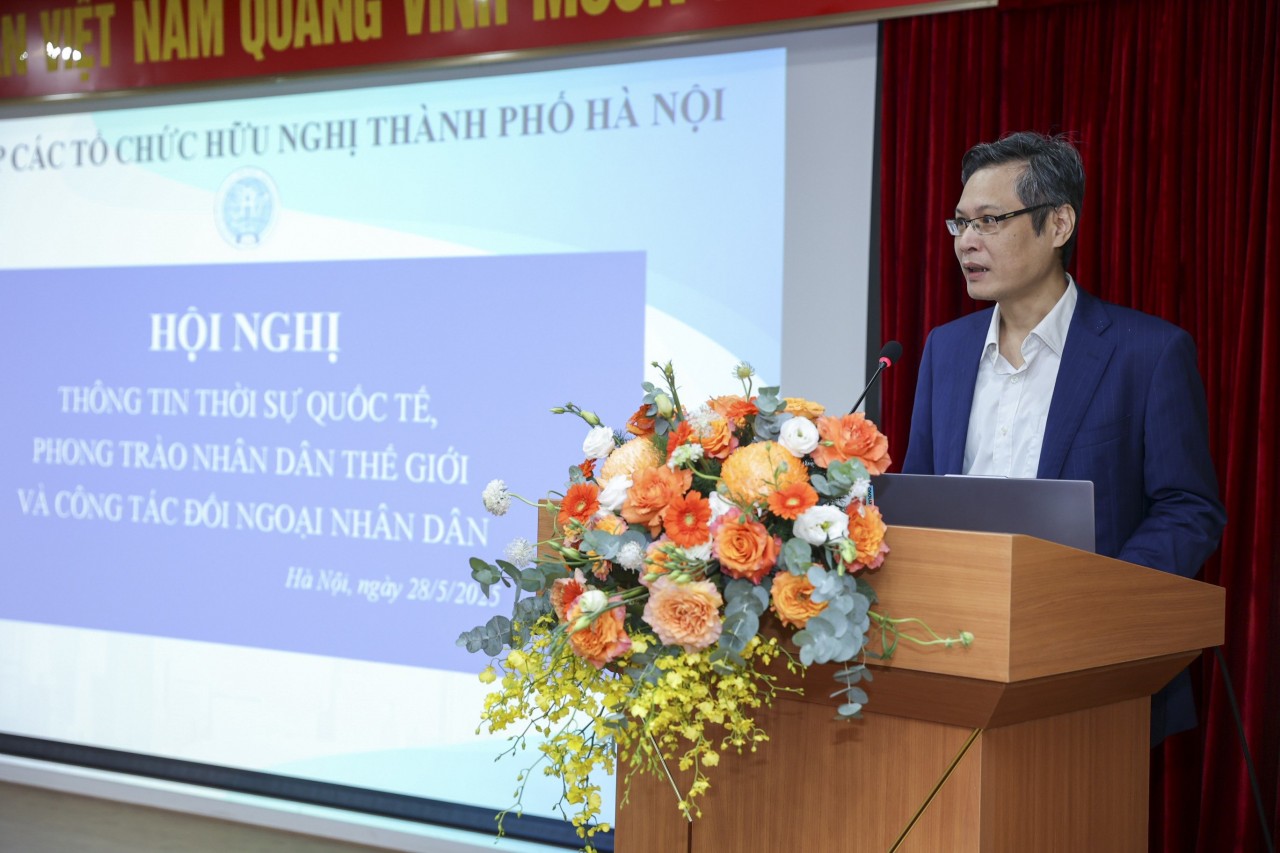 Viet's Home
Viet's Home
HAUFO Enhances Competence of People-to-People Diplomacy Personnel
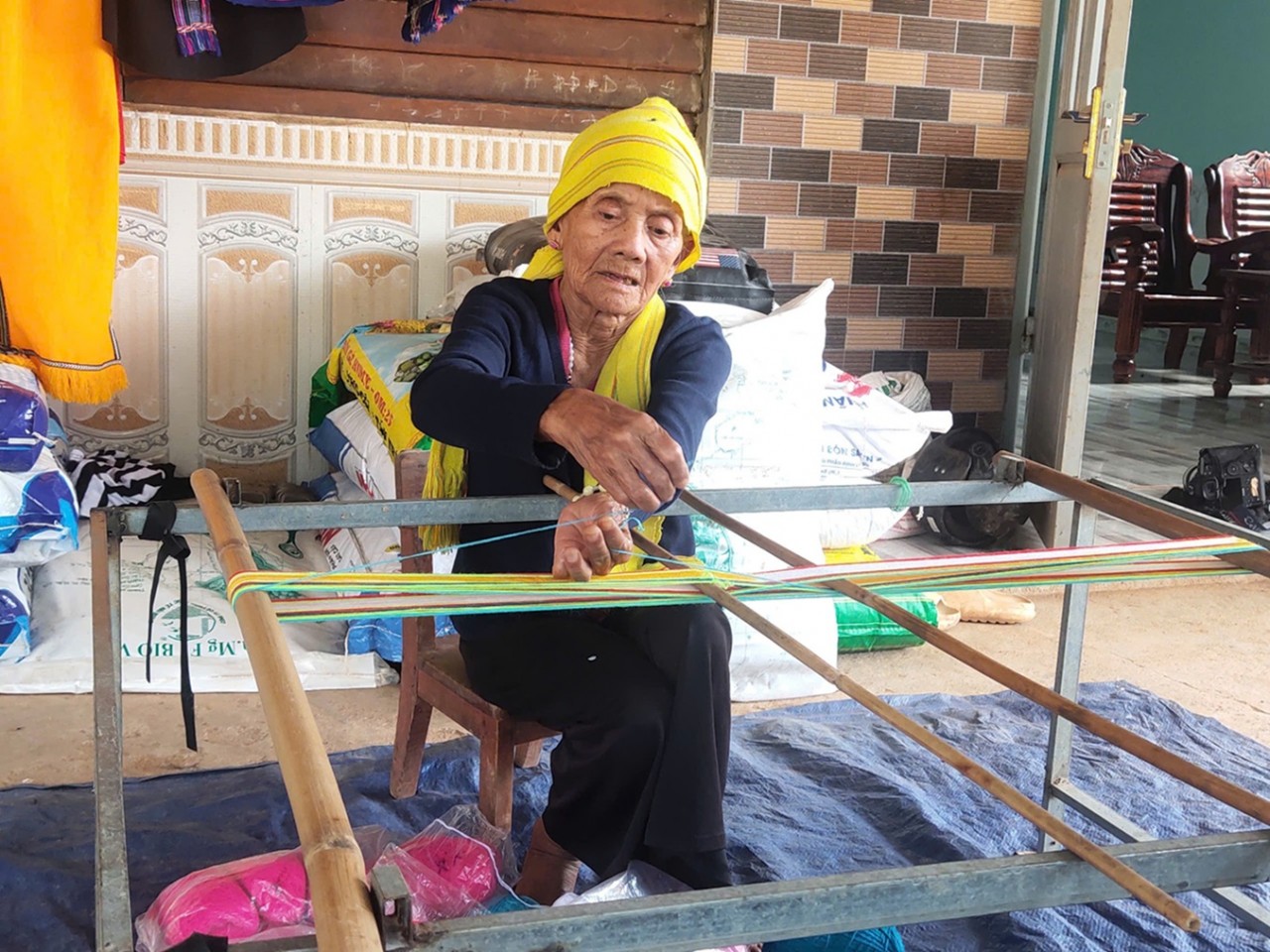 Viet's Home
Viet's Home
Hands that Reserve Da Long Brocade Craft
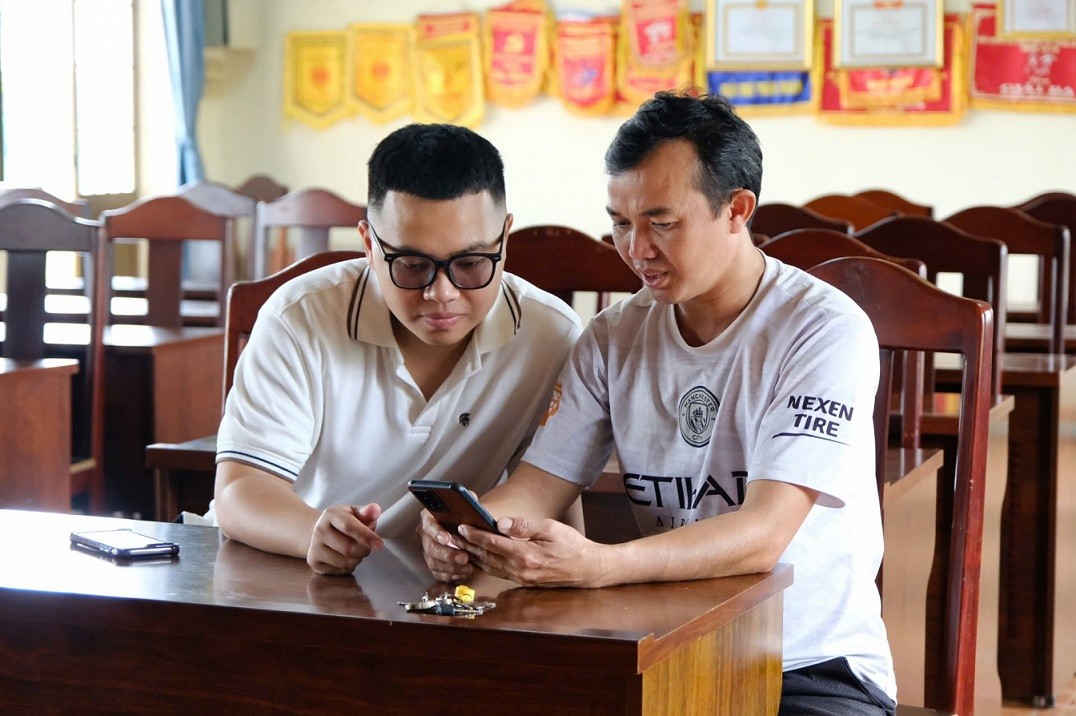 Viet's Home
Viet's Home

